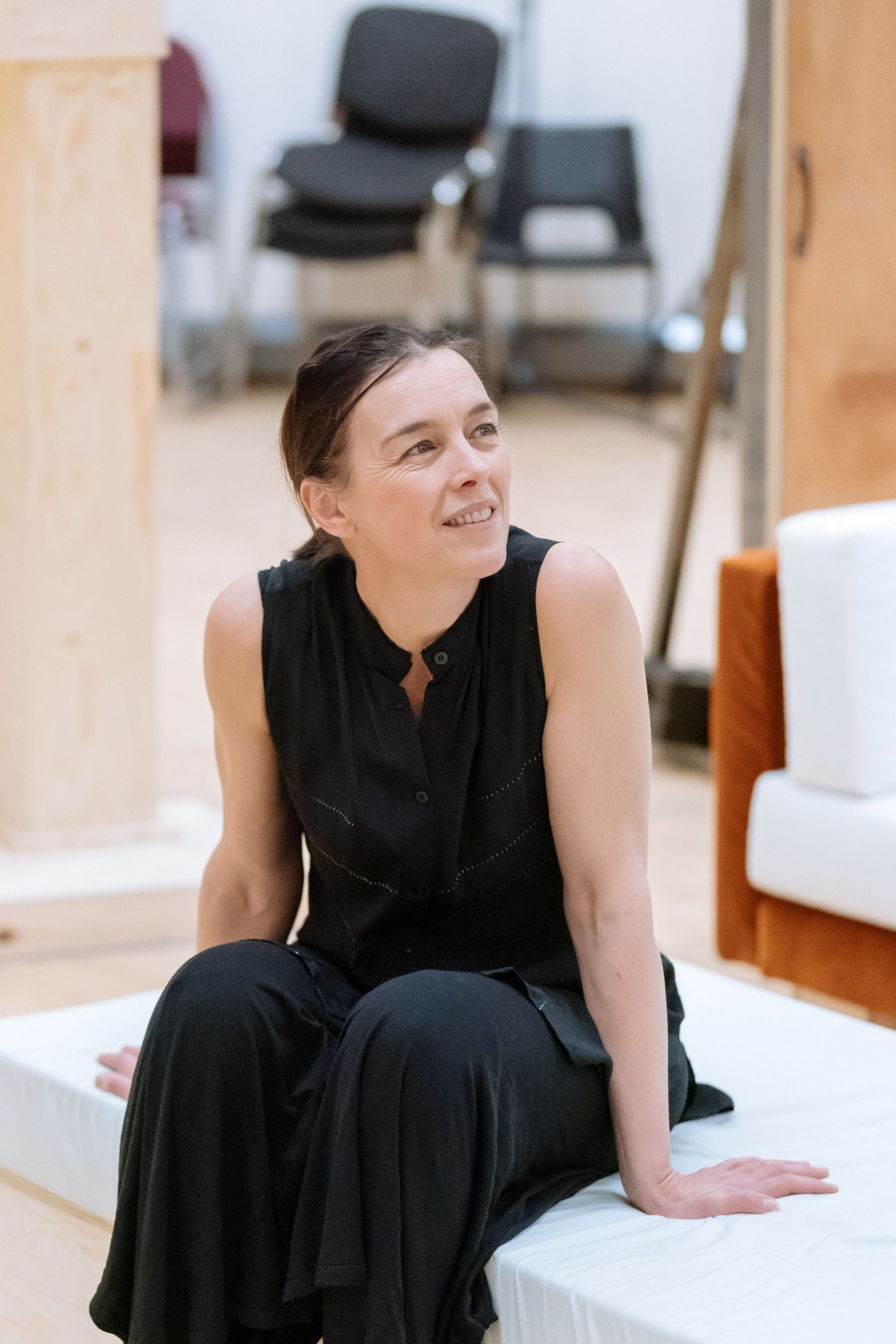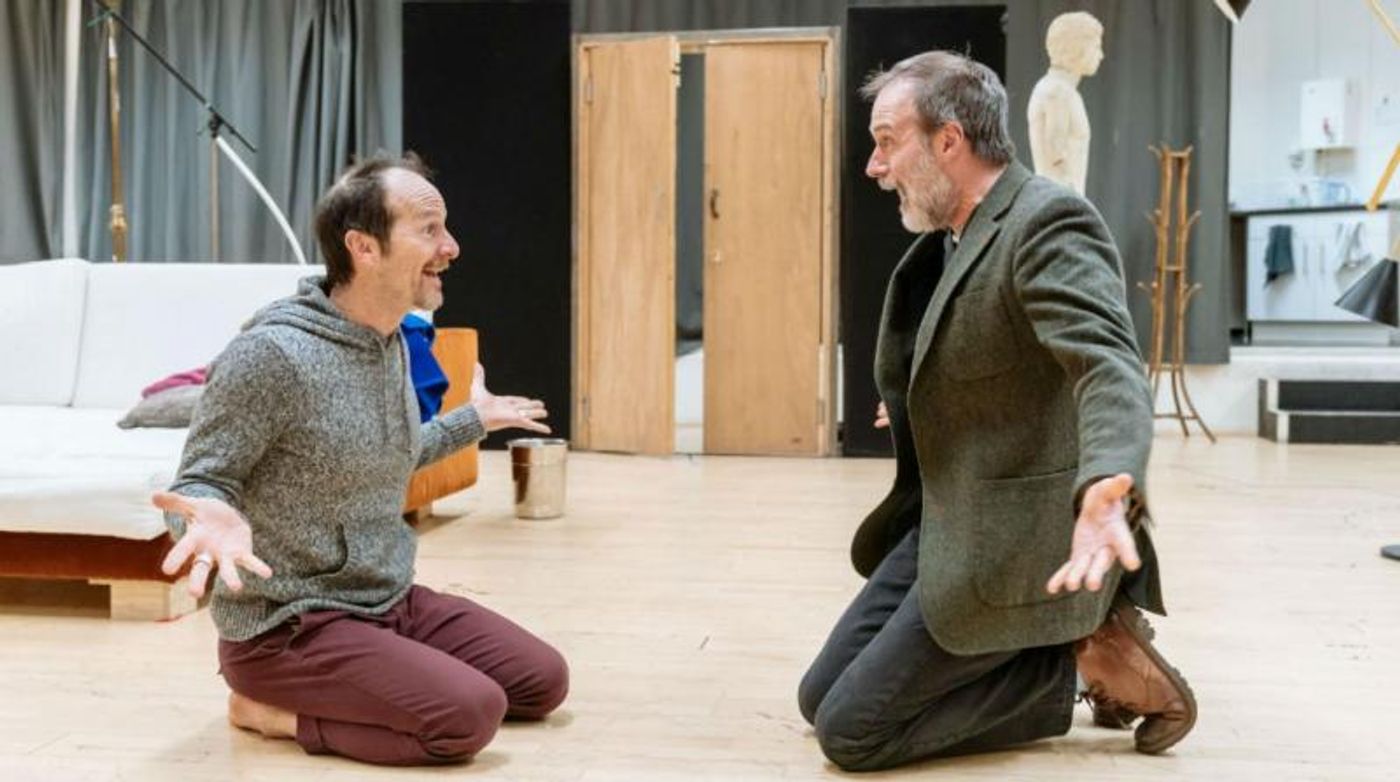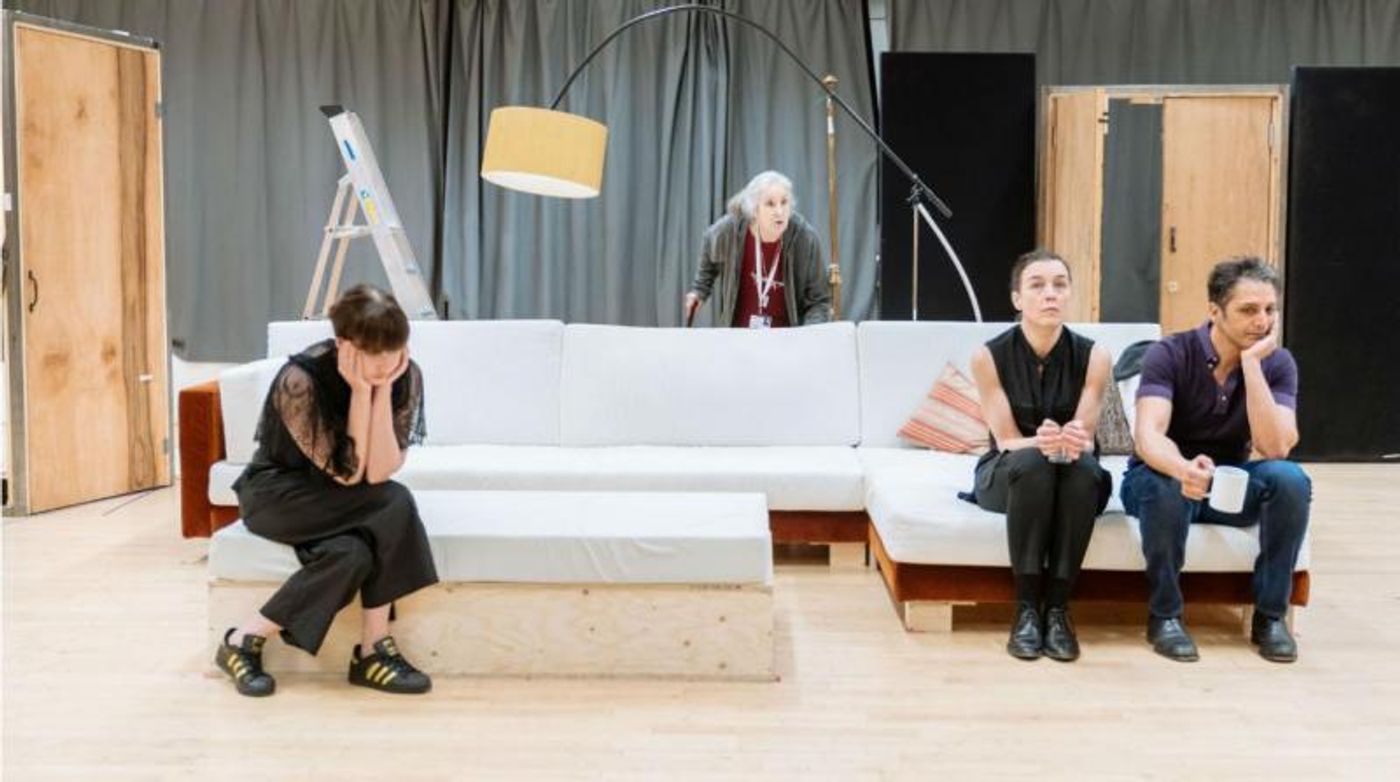Interview: Olivia Williams Talks TARTUFFE

for Tartuffe
Last year saw two major productions of Tartuffe take to the stage: at the Theatre Royal Haymarket, and for the Royal Shakespeare Company.
This year, John Donnelly brings a new version of Molière's comedic classic to the National Theatre. Featuring Denis O'Hare in the titular role alongside Olivia Williams, the latter is a familiar face to audiences from stage and screen, particularly the National's stages in recent years.
Sharing what brings her back to this theatre time and time again, Olivia also reveals one of her first questions for director Blanche McIntyre, as well as her excitement for getting to take on a comedy.
What's your earliest memory of theatre?
My parents were passionate theatre-goers, and I remember that going to the ballet was a big treat. I wanted to be a ballerina before I wanted to be an actor.
But most memorable for me was The Comedy of Errors, with Judi Dench. It was the RSC's modernised production with a gag with an entry phone - it was just brilliant. When I watch ballet I tend to sit back and marvel in awe. Watching The Comedy, I wanted to clamber over the seats and get on stage with them...
How amazing then that years later, you'd perform for that company. Was it the stage that came first for you, when you came out of drama school?
It was the stage for sure, everything was theatre and Shakespeare. I actually had very little experience of modern writing. That's been one of the joys of my career: I've been brought to this multitude of things, and not unwillingly. I had to learn the language and the beauty of it on the hoof.
Last year in particular, that was a culmination for me of the most amazing year. I did Mosquitoes by Lucy Kirkwood, the ultimate in modern writing. But it's also timeless, I think her writing will last because she writes on such vast subjects but with microscopic, personal input.
That for me was a coming together of all the skills I'd gathered over the years. What a journey, to go from hammering out iambic pentameters to beginning a sentence "And, but, or sometimes, whenever I feel sort of, overwhelmed..." - finding the poetry and rhythm in Lucy's writing was a revelation.
Alongside that career on stage, you've had an incredible one on screen. I'd be remiss if I didn't say that Dollhouse was one of my favourite TV shows at university.
Thank you. Joss Whedon is a clever man and he has such a strong theatrical sensibility.
I still think much of his film of Much Ado About Nothing is definitive. It was filmed in his house. He used to hold play-readings on a Sunday with the Dollhouse cast. Anyone who was around would read a play in this little amphitheatre in his back-garden. It was my only chance to try out my drunken Gertrude.
Now you're back on stage, in rehearsals for Tartuffe. This isn't your first time at the National, in fact I believe you've performed in every space...

in rehearsals for Tartuffe
You know, I think I have.
Happy Now at the Dorfman, Mosquitoes too, Waste and Richard III in the Lyttelton, and Love's Labour's Lost in the Olivier.
What really brings me back is the work. The first time it was Richard III with Ian McKellen, understudying Anastasia Hille. I learnt more from her than I had in two years at drama school. Then Trevor [Nunn]...He has such a profound relationship with theatre. It is elemental. From the Olivier to the Menier he can strum on your heartstrings on any scale.
I have been whingeing for years that I never get to do comedy. I really was dying to do something that wasn't ripping my internal organs out in front of people... Then along came Tartuffe. This is what I've been saying I can do. Now I have to put my slapstick where my mouth is. Of course in rehearsal, I discover you have to rip out your internal organs and make it funny.
How familiar were you with Tartuffe?
Well I remember Antony Sher/ Nigel Hawthorne brilliant production with Christopher Hampton's definitive version, which I think I saw on television.
As with many things, I thought I knew it until I went back to it. I had to put my pre-conceptions aside, because John Donnelly has done a complete refit and adaptation. It's a finger-on-the pulse piece in many ways - what it says about the different ways of living and organising society; about cupidity and envy, about sharing our space with strangers. That vast divide between rich and poor, and how the rich have come by their riches and how they hang on to them.
Can you tell us a bit about your character?
Moliere's Elmire is written as a virtuous victim - a woman whose honour needs to be protected partly for her own good but largely to avoid humiliating her husband. At one point, she enters into a deal that compromises her reputation to try and spare her step-daughter from a marriage she doesn't want. However commendable her intention, she has entered into a deal - when does she become culpable and to blame for her own plight?
It raises the issue of consent. When you enter into some sort of contract with someone, does that mean you are consenting to being sexually assaulted? And what happens when you regret that decision you've made?
But running alongside the debate, is this undeniable farce. When I saw Tony Sher's version, it set an extremely high-bar of funny, as has the recent production at the RSC. No pressure.

in rehearsals for Tartuffe
It sounds like John's script is quite loose, making those modern issues ring out even more.
Exactly.
The one at the RSC is interesting because it's replaced one restrictive society with another - swapping 17th century morals with a man hijacking modern, fundamentalist Islam for his own ends. But if you take away those things, those restrictions of arranged marriage and marital fidelity (as John has done), what does that do?
It's one of the debates of our time. A woman should be able to choose to have sex with 20 people, and if she doesn't want to have sex with the 21st person, that's rape. The 21st person can not assume that she's "Up for it".
I think it's important to keep those discussions going. And there are similar discussions circulating in the building over When We've Sufficiently Tortured Each Other. As we break down the sexual mores of Tartuffe, we realise we're doing When We Have Sufficiently Tortured Each Other - The Comedy.
How do you feel about getting to play that more comedic role now, in this production?
From everything I've watched and learned about it, all good comedy has to have a grounding in high stakes. Anything that is obscene just for the sake of it doesn't play; you have to make sure it is an absolute disaster if you are discovered. Much of comedy seems to stem from the terrible choices people make under pressure. Just as horror is based on "Don't Go into the Cellar", farce relies on "Don't Hide in the Broom Cupboard".
Fortunately we have Denis O'Hare as our secret weapon. He's got that gene where he is endlessly creative with his humour and fearless in his performance, as Tartuffe needs to be. And Kevin Doyle as Orgon, who is wound up to such a level of neurotic frustration with his family... I am just trying not to get in the way.
You're returning to the Lyttelton stage. What's it like performing in that space?
I love that auditorium. There isn't a bad seat and you can really communicate with your audience. The stage is very wide, it's quite like a cinema - it can feel less intimate than, say the Dorfman.
The last time I played the Lyttelton was in Waste, a production brilliantly designed by Hildgard Bechtler. For a period play it was very stripped back and acoustically it was a tricky - there was nothing bouncing the sound forward, so our voices disappeared. I was very chastened to get audibility notes for the first time in my life either on or off stage. Most of the time family and friends are asking me to keep my voice down. So I shall be bellowing out the first few previews until I find the right level. The National Theatre audience are sticklers for audibility.

Olivia Williams and Hari Dhillon
in rehearsals for Tartuffe
Finally, what can you tell us about the world around the production? Perhaps a bit about the set?
One of the very first things I said to Blanche was, "Tell me about the set". It is my belief that you cannot do farce without a set of double doors, a sofa and a lamp shade...and thank God we have all three.
Rob [Jones'] gorgeous set is raked towards the audience. It's made the Lyttelton feel and look intimate, even though the space is huge. We've all put in a bid for the sofa and the lamp and the swivel chair. I want to live in that room. I going to paint my living room the same colour.
And we get to play in that. It's like a playground with places to climb and swing and hide. I love my job.
Tartuffe at the Lyttelton Theatre, National Theatre, from 9 February 2019
Photo credit: Manuel Harlan
Videos

